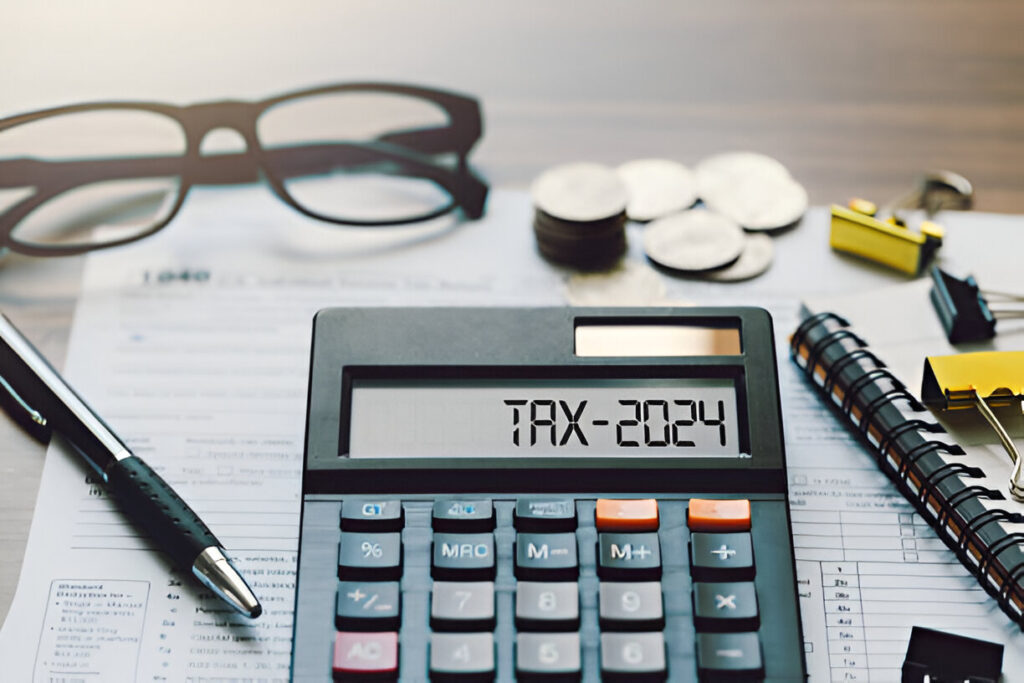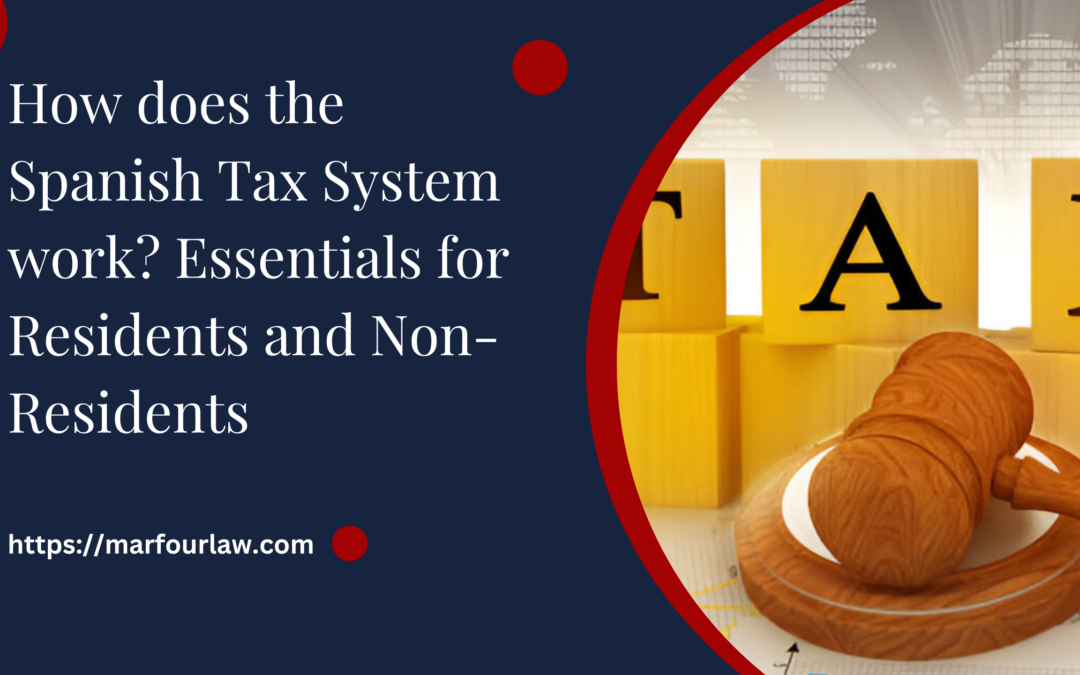Getting a handle on the Spanish Tax System work can feel like navigating through a maze, but it doesn’t have to be that complicated. Whether you’re living in Spain, planning to move, or just trying to figure out how things work, knowing the basics is crucial. It’s a bit like learning the rules of a new game—you want to be prepared so you don’t get caught off guard. This guide will break down the essentials of the Spanish Tax System work clearly and straightforwardly. So, if you’re ready to get a better grasp on how taxes work in Spain, let’s dive into the details together!
What You Need to Know About the Spanish Tax System work
When you’re living in Spain or planning to move there, getting familiar with the tax system is essential. Spain’s taxation might seem complex, but breaking it down into simple parts can make it a lot easier to grasp. Here’s a straightforward guide to help you get a handle on Spain’s tax landscape.
How Taxes in Spain for Expats Work?
If you’re an expat in Spain, you’re likely wondering how the tax system will affect you. Spain’s taxes for expats follow specific rules that can be quite different from what you might be used to. For instance, as an expat, you’ll need to pay income tax on your worldwide earnings if you’re considered a tax resident.
Non-residents, on the other hand, only pay taxes on income earned within Spain. It’s a bit like playing a game with its own set of rules, but once you’re familiar with them, it gets easier.
Key Aspects of Income Tax in Spain
Income tax in Spain is divided into several brackets, with rates that increase as your income does. The Spanish taxation rates are progressive, which means higher earnings are taxed at higher rates. For example, lower incomes might be taxed at around 19%, while higher incomes could be taxed at rates up to 47%.
Understanding these brackets will help you figure out how much you’ll need to pay based on your earnings. It’s similar to how you might pay more for a luxury item compared to a basic necessity.
How to Obtain a Spanish Tax ID Number?
One important step in managing your taxes in Spain is getting a Spanish tax ID number, known as the NIE (Número de Identificación de Extranjero). This number is essential for everything from opening a bank account to filing your taxes.
Think of it as your tax passport in Spain. You can apply for it at a local police station or through the Spanish tax office. Once you have your NIE, you’ll be set to handle all your tax-related needs.
Filing and Paying Your Taxes
Filing your taxes in Spain involves reporting your income and paying the appropriate amount. The process generally starts with filling out a tax return form, which you can do online or on paper. If you’re working with a Spanish tax advisor, they can help make this process smoother. It’s a bit like doing your annual check-up—you might not enjoy it, but staying on top of it ensures you’re in good shape financially.
By familiarizing yourself with these aspects of the Spanish Tax System work, you’ll be better prepared to handle your tax obligations smoothly. Whether you’re an expat or a local, having a clear picture of how taxes work in Spain will make managing your finances a lot easier.
How does Spain’s Income Taxes Impact You?
If you’re living in Spain or considering a move, you’ll need to get familiar with how income tax works here. Spain taxes individuals based on their income, so whether you’re working for a company, running your own business, or receiving other forms of income, it all factors into what you owe. Spain’s income tax system is progressive, meaning that the more you earn, the higher the rate you’ll pay. Imagine it like a sliding scale—your tax rate increases as your income does.

How Spanish Tax Rates Affect Your Wallet?
In Spain, tax rates are divided into different brackets. For example, if you earn a moderate salary, you might fall into a lower tax bracket, while higher earnings push you into a higher bracket with a higher rate. It’s similar to how a bigger slice of the pie gets a bigger portion—more income means a larger piece of your earnings goes to taxes. These rates can vary based on where you live, as regions have some say in how taxes are applied. It’s important to check the current rates to see how they apply to your specific situation.
Why Does Your Spanish Tax ID Number Matters?
When dealing with taxes in Spain, you’ll need a Spanish Tax ID number, known as the NIE (Número de Identificación de Extranjero). This number is crucial for all tax-related activities, from filing your returns to managing tax payments. Think of it as your personal tax identifier—it’s like having a unique key that gives you access to all your tax records and obligations in Spain. Without it, you can’t properly handle your income taxes or other financial dealings in the country.
What to Know About Taxes for Expats in Spain?
If you’re an expat, the Spanish taxation system has specific rules that apply to you. Spain taxes residents on their worldwide income, so even if you earn money from abroad, it’s still subject to Spanish taxes. However, there are treaties in place to avoid double taxation, which means you won’t be taxed twice on the same income. It’s a good idea to get familiar with how these treaties work to ensure you’re not paying more than necessary. Knowing how Spain’s tax laws impact expats will help you manage your finances and avoid surprises.
Practical Tips for Managing Your Income Tax in Spain
Handling taxes in a new country can feel overwhelming, but it doesn’t have to be. Start by keeping accurate records of all your income and expenses. This will make filing your tax return smoother and help you stay on top of your obligations. Additionally, consider consulting a tax advisor who specializes in Spanish taxation for expats. They can offer guidance tailored to your unique situation, making the whole process a lot less stressful.
Basics of VAT and Other Taxes in Spain
When it comes to taxes in Spain, VAT and other tax types play a big role. Let’s break down what you need to know.
What is VAT and How Does it Work?
Value Added Tax (VAT) is a tax you’ll encounter on many goods and services in Spain. It’s similar to sales tax in other countries. The standard VAT rate in Spain is 21%, but there are reduced rates for certain items. For example, essential goods like food and medicine often have a lower VAT rate of 10%. Think of VAT as a small addition to your purchase that goes to the government.
Other Important Taxes to Know About
Aside from VAT, there are several other taxes you might come across in Spain. Income tax is one of the most significant for residents and expats alike. The rates can vary based on your income level, and Spain has a progressive tax system. This means higher income levels are taxed at higher rates. The Spanish Tax System work has different brackets, and it’s important to know where you fall.
What You Should Be Aware Of Taxes for Expats?
If you’re an expat living in Spain, you’ll need to be familiar with Spanish taxation rates. Spain taxes its residents on their worldwide income, so even if you’re earning money from outside Spain, you need to report it. Fortunately, Spain has tax treaties with many countries to avoid double taxation, which means you won’t pay tax on the same income twice.
Your Key to Handling Taxes Spanish Tax ID Number
To handle any taxes in Spain, you’ll need a Spanish Tax ID Number, known as NIF (Número de Identificación Fiscal). This number is essential for everything from filing your taxes to making official purchases. Think of it as your personal tax identifier in Spain, much like a social security number in other countries.
How Tax Residency in Spain Works and Why It’s Important?
So, you’re thinking about moving to Spain or perhaps you’re already living there. How do you figure out if you’re a tax resident? Spain has specific rules to determine this. Generally, if you spend more than 183 days in Spain during a calendar year, you’re considered a tax resident. It’s like the rule of thumb for being a local—you’re part of the scene if you’re there more often than not. There are also other factors like your main home and where your center of economic interests lies.

Why Tax Residency Matters?
Why does being a tax resident matter? Well, it affects how you’re taxed. As a tax resident in Spain, you’re subject to Spanish taxation on your worldwide income. That means your earnings from anywhere—be it from a job, investments, or other sources—will be taxed by Spain. On the flip side, non-residents only pay taxes on income earned within Spain. Think of it as a way to ensure you’re paying your fair share based on where you’re truly living and earning.
Impact of Tax Residency on Expats
If you’re an expat, tax residency can change how Spain taxes you. Spain’s taxes for expats can be different from what you’re used to, especially if you’re moving from a country with a different tax system. For instance, if you become a tax resident, you’ll need to file an income tax return in Spain and might need a Spanish tax ID number to handle your filings. This number is like your personal tax ID card, helping track your tax obligations.
How to Prove Your Tax Residency?
Proving your tax residency in Spain involves showing evidence that you meet the requirements. This can include records of the number of days spent in Spain, proof of where your main home is, or documents showing where your income is generated. It’s like keeping a diary of where you’ve been and where your financial activities occur, ensuring everything aligns with Spanish tax laws.
What to Do If Your Residency Status Changes?
Life isn’t static, and neither is your residency status. If you move in or out of Spain, you might need to update your tax status. If you shift to a different country, you’ll need to inform Spanish authorities to avoid double taxation. Spain has agreements with many countries to prevent you from paying taxes twice on the same income, which can save you a lot of hassle.
Essential Tax Rules for Expats and Foreigners in Spain
If you’re an expat or a foreigner living in Spain, there are some key tax rules you need to be aware of staying on the right side of the law.

Tax Residency Rules
As an expat or foreigner in Spain, one of the first things you need to determine is your tax residency status. Generally, if you spend more than 183 days in Spain within a calendar year, you are considered a tax resident. This means you are liable for paying taxes on your worldwide income, not just the income you earn in Spain. If you stay for fewer days, you’ll only be taxed on the income generated within Spain. Knowing your status is crucial for understanding which taxes you need to pay.
Income Taxes Explained
Spain uses a progressive tax system for income taxes, meaning that as your income increases, the rate of tax you pay also increases. This system applies to both residents and non-residents, though the scope of income tax differs. Residents must report all income from around the world, while non-residents only report their Spanish income. Understanding these rates and ensuring you report all relevant income correctly can help you avoid surprises come tax time.
Social Security Contributions
If you’re working in Spain, you’ll be contributing to Spanish social security. For employed individuals, these contributions are automatically deducted by your employer and cover healthcare, pensions, and other benefits. If you’re self-employed, you need to handle these contributions on your own. Think of these payments as your share of Spain’s social safety net, helping to cover healthcare and retirement benefits.
Property and Wealth Taxes
Owning property or having significant assets in Spain means additional tax responsibilities. Property owners must pay an annual property tax based on the value of their real estate. Additionally, Spain has a wealth tax for those with substantial assets, which varies by region. It’s important to be aware of these taxes and ensure you’re fulfilling your obligations to avoid any issues.
Filing and Managing Taxes
Filing your taxes in Spain involves submitting the appropriate forms and meeting deadlines. Many expats find it helpful to work with a tax advisor, especially if their tax situation is complex. Keeping accurate records and filing on time is key to managing your taxes effectively and avoiding penalties. If you encounter any issues or have questions, reaching out to a tax professional or the tax authorities can provide clarity and assistance.
By keeping these essential tax rules in mind, you can better manage your tax responsibilities in Spain and focus on enjoying your time in the country.
Stress-Free Tips for Managing Your Taxes in Spain
Managing your taxes in Spain doesn’t have to be a headache. With a few practical tips, you can handle your tax responsibilities smoothly and keep stress at bay. Let’s break it down step by step.
Stay Organized with Your Documents
First things first, keep all your tax-related documents in one place. Think of it like having a neatly organized toolbox—you’ll be glad you did when it’s time to file. Gather your income statements, bank records, and any receipts related to deductions or credits. By staying organized, you’ll make the whole process much simpler.
Know Your Tax Deadlines
In Spain, knowing the key dates for tax submissions is crucial. Missing a deadline can lead to penalties, so it’s like setting reminders for important appointments. Mark your calendar with the dates for income tax returns and any other required submissions. This way, you won’t be scrambling at the last minute.
Utilize Spain’s Tax Deductions and Credits
Spain offers various deductions and credits that can reduce your tax bill. It’s like finding discounts while shopping—why not take advantage? Look into available options such as deductions for mortgage interest or education expenses. Knowing what’s out there can help you save money.
Consider Professional Help if Needed
If tax matters seem overwhelming, don’t hesitate to seek professional advice. It’s similar to hiring a guide when exploring a new city. A tax advisor can help you understand specific rules that apply to your situation and ensure everything is done correctly. Sometimes, a little help goes a long way.
Keep Track of Changes in Tax Laws
Tax laws can change, so staying informed is important. Imagine it like keeping up with new recipes if you love cooking—knowing the latest updates helps you avoid surprises. Regularly check for any changes in tax regulations that might affect you, and adjust your planning accordingly.
By following these simple tips, you’ll handle your taxes in Spain with ease and confidence. Keeping things organized, staying on top of deadlines, making the most of deductions, seeking professional help when needed, and keeping up with changes will make managing your taxes a lot smoother.
What to Do If You Face Tax Issues in Spain
Facing tax problems in Spain can feel like you’re stuck in a storm without a compass. But don’t worry, there are steps you can take to find your way back to calm waters. Here’s how to tackle any tax issues you might encounter.

Recognize the Problem Early
First things first, if you notice something off with your taxes, act fast. Maybe you received a surprising letter from the tax office or you think there might be a mistake in your tax return. Catching these issues early can prevent them from snowballing into bigger problems. Think of it like fixing a small leak before it turns into a flood.
Gather All Relevant Documents
Next, pull together all your tax documents. This includes any correspondence from the tax authorities, your tax returns, and any supporting documents you’ve used. Having everything in one place helps you and any professionals you consult to get a clear picture of the situation. It’s like organizing your tools before starting a project; it makes the job easier.
Seek Professional Help
When you’re dealing with tax issues, getting advice from a professional is often a wise move. Tax advisors or accountants who are familiar with Spanish tax laws can offer valuable guidance and help you handle the situation effectively. Marfour International Law Firm is an excellent choice for expert assistance in this area.
Their team of professionals is well-versed in Spanish tax regulations and can provide the expert advice you need. They’re like having a seasoned guide when you’re exploring unfamiliar territory, ensuring you make informed decisions and resolve your tax issues with confidence.
Respond to Tax Authorities Promptly
If you’ve received a notice from the tax office, respond as soon as you can. Ignoring it can lead to more severe consequences. Make sure your response is thorough and addresses all points raised in the notice. It’s similar to replying to an important email quickly to avoid any misunderstandings.
Explore Options for Resolution
Depending on the nature of your tax issue, you might have different options for resolving it. This could include negotiating a payment plan if you owe money or appealing a decision if you think it’s incorrect. Each situation is unique, so consider all your choices and pick the one that fits best. It’s a bit like choosing the right tool for a specific job—using the right approach makes a big difference.
Keep Records of Everything
Throughout this process, keep detailed records of all communications and documents related to your tax issue. This not only helps you stay organized but also provides evidence if you need to reference it later. It’s like keeping a diary of your journey; it helps you remember each step and make informed decisions.
FAQs
Find answers to common questions about handling tax issues in Spain, from dealing with notices to finding reliable tax advisors. These FAQs cover practical advice to help you manage and resolve any tax concerns effectively.
What should I do if I receive a tax notice from the Spanish tax office?
If you get a notice, don’t ignore it. Read it carefully and gather all related documents. Respond promptly to address any issues or questions they raise. If needed, consult a tax advisor for help in crafting your response.
How can I find a reliable tax advisor in Spain?
Look for tax advisors or accountants with experience working with expats or in your specific situation. Check online reviews, ask for recommendations from friends or colleagues, and ensure they are registered with a professional body in Spain.
Can I negotiate a payment plan if I can’t pay my taxes all at once?
Yes, you can often negotiate a payment plan with the tax authorities if you’re unable to pay the full amount due. Contact the tax office to discuss your options and see what arrangements can be made.
What if I disagree with a tax decision?
If you disagree with a decision, you have the right to appeal. Follow the instructions on the notice you received to file an appeal. Keep detailed records of all communications and provide supporting documents for your case.
How can I prevent tax issues in the future?
To avoid future tax problems, keep accurate records, file your taxes on time, and seek professional advice if you’re unsure about any aspect of your tax obligations. Regularly review your tax situation to ensure everything is in order.
Conclusion
Dealing with tax issues in Spain can feel overwhelming, but taking the right steps can help you resolve them efficiently. Start by recognizing any problems early and gathering all necessary documents. Don’t hesitate to seek professional help and respond to tax authorities promptly. Explore all your options for resolving the issue and keep detailed records throughout the process. With these strategies, you can address tax challenges head-on and keep your financial affairs in good shape. Remember, staying organized and proactive can make all the difference in navigating tax matters smoothly.

